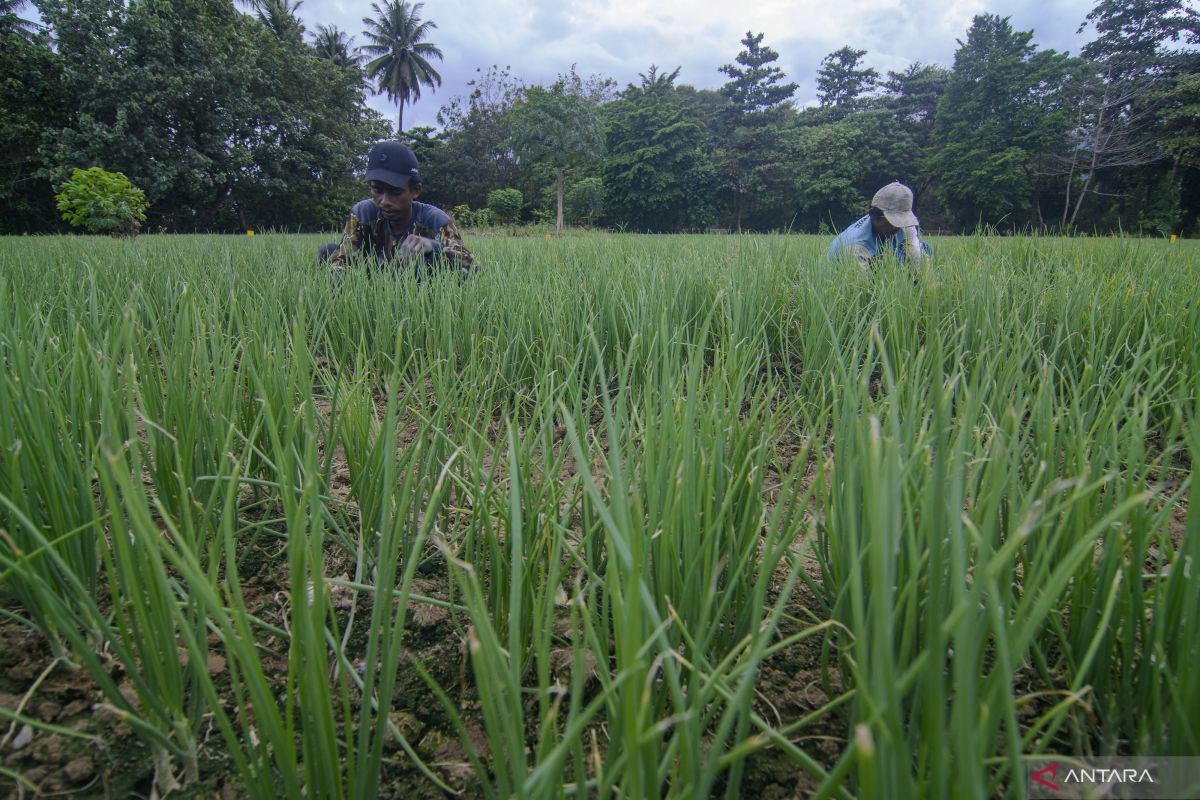Head of BRIN’s Agriculture and Food Research Organization Puji Lestari said that the use of botanical seeds provides an alternative to bulb seeds and can be developed to improve shallot seed quality.
"TSS has many pros compared to bulb seeds," she highlighted in a statement received here on Monday.
The technology can be applied on a large scale, and it can provide a large volume of seeds throughout the year owing to the high seed multiplication ratio: a single bulb can produce 200 to 300 botanical seeds.
Shallot seeds derived from botanical seeds are tiny, and 3–5 kilograms of the seeds can be planted on a one-hectare plot. However, bulb seeds have larger volume and therefore, 1.2 tons of bulb seeds are needed to fill a one-hectare plot, making the cost of distribution high.
Botanical seeds can be stored for more than a year and do not have a dormancy period, whereas bulb seeds can only be stored for two months, and the stock is not sustainable once the season changes.
Lestari stated that the dynamics of shallot prices can determine national economic growth; yet intensive shallot cultivation and development across 32 provinces still cannot guarantee supply continuity, causing supply crunches at the end of the season.
In the past 10 years, the national productivity rate of shallots has ranged from 8.5 to 10.5 tons per hectare, indicating stagnation.
"BRIN has prepared a policy brief, particularly on land suitability or agro-ecosystem to push toward (greater) productivity, and (it) can become one of the efforts to give national recommendation on accelerating innovation research. 2023 to 2024, the output is policy recommendation," she stated.
Shallot is a strategic commodity with a high economic price in Indonesia. It is frequently used to spice up meals and cannot be easily substituted—one of the reasons why its availability needs to be maintained at affordable prices to prevent inflation.
A researcher at BRIN’s Horticulture and Plantation Research Center, Paulina Evy Retnaning Prahardini, said that the demand for shallots has risen with the growth in population.
"This brings the consequences that plots must be expanded, shallot production effectiveness and efficiency has to be pursued and met," she pointed out.
To address the issue of farmers not wanting to use botanical seeds due to their longer harvest time compared to bulb seeds, transplanting has been recommended.
For this, seedlings obtained from the seeds will need to be sown for about 30 to 42 days. The method will allow farmers to get a high-quality crop, which can be reaped in 55 to 60 days—the same amount of time it takes with bulb seeds.
Related news: Ministry supplies 142 tons of chili peppers, shallots to Jakarta
Related news: Governor pushes land restoration for boosting shallot productivity
Translator: Sugiharto Purnama, Mecca Yumna
Editor: Rahmad Nasution
Copyright © ANTARA 2023












